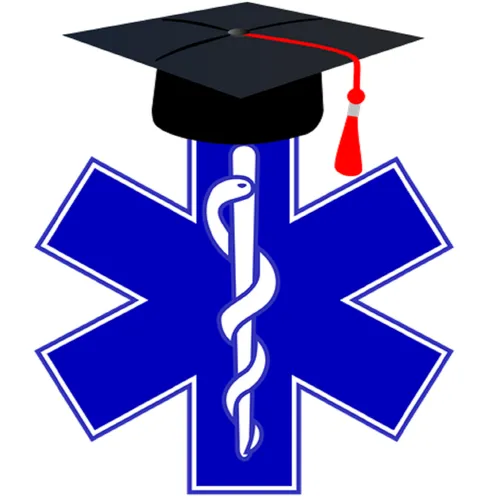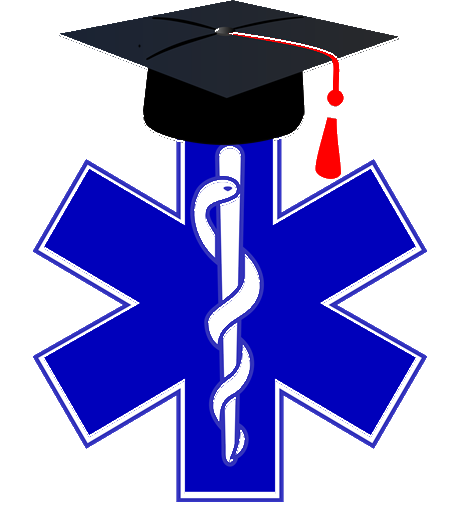
Tim's Take Away on EMS and Education related topics
Tim’s Take Away discusses EMS clinical topics for EMT, Paramedics, and other healthcare providers as well as thoughts and ideas on education and Ed Tech.
- Update frequency
- every 4 days
- Average duration
- 33 minutes
- Episodes
- 20
- Years Active
- 2019 - 2021

Nasopharyngeal Airway, The Truth!
In this episode, we dive into looking at the controversy behind the use of the Nasopharyngeal Airway. We close out the episode with what the literature actually says about this simple life-saving dev…

Annotating Your Text
Active learning is not just important in the classroom, it is also important during the study process. Reading for learning becomes more effective when you annotate your readings. This session will p…

Applying Spinal Motion Restriction Recommendations
In 2018, the American College of Surgeons, Committee on Trauma, and the National Association of Emergency Physicians released a joint consensus statement on Spinal Motion Restriction. This short sess…

Study Tip Retrieval Practice
Rereading your textbook does not improve your knowledge. What does improve your recall for when you need it is retrieval Practice. This shot tip will describe how to set up retrieval practice.

Airway Positioning Tip
In this episode, Tim walks through some basic airway positioning to ensure better oxygenation and ventilation for our patients. This podcast does have a corresponding video https://youtu.be/tcMINfNrB…

Abdominal, GI and GU Injures for the EMT
In this episode, we talk about injures to the abdomen, the GI and GU areas from the EMT standpoint. When learning about the human body, a lot of folks become confused with the organs inside the abdom…

Spinal and Traumatic Brain Injuries for the EMT
In this episode, we talk about spinal injuries and the different types of Traumatic Brain Injuries from the EMT standpoint. This area is often one that is confusing for many EMT students. Because man…

Soft Tissue, Bleeding, and Orthopedic Injuries for EMTs
This episode is dealing with bleeding, soft tissue, and orthopedic injuries. These areas frequently overlap each other. To me, it makes sense that these areas are then combined or talked about togeth…

Shock For The EMT
In this episode of Tim's Take Away, I discuss shock. This episode expands on some of the basic pathophysiology of shock. Why we look for the signs and symptoms gives us a great indication that a pati…

Pharmacology for the EMT
This episode of Tim's Take Away is the basics of Pharmacology for the EMT Student. We will talk about the routes of medication administration, what the indications and contraindications of a medicati…

Immunological Emergencies, EMT
In this episode, we will provide a general overview of the most common, and often scary, emergency in EMS. The allergic reaction or anaphylaxis. This episode provides a general discussion as to the i…

EMT Face and Neck Trauma
This episode covers common trauma-related emergencies found to the face and neck. Topic includes a general review of the anatomy, common injuries, assessment tips, and common treatments.
The opinions…

Toxicological Emergencies, EMT
This episode deals with Toxicological Emergencies. From some general considerations of scene safety, PPE, and introducing some common toxidromes. This episode demonstrates the importance of knowing h…

Uh Oh Student Remediation for the Educator
This episode is primarily focused on the EMS instructor/educator. If you are a student who is preparing or attempting to take the certification exam you too will find some useful information in here …

Neurological Emergencies for the EMT
In this episode of Tim's Take Away, we discuss neurological emergencies, such as stroke, seizures, and medical conditions which affect the nervous system.
Need to review some Anatomy?

Behavioral / Psychiatric Emergencies for the EMT
In this episode of Tim's Take Away, we discuss behavioral/psychiatric emergencies. While we are not often asked to identify the exact cause of the emergency, we must be aware of some common condition…

Cardiac Arrest Management (BLS)
This episode goes over the treatment of out of hospital cardiac arrest utilizing the 2015 American Heart Association Guidelines. This does not constitute a formal CPR (BLS) course.
The opini…

EMT Cardiovascular Emergencies
In this episode of Tim's Take Away, we cardiovascular emergencies. This episode will provide an overview of several disease processes which involve the cardiovascular system. Cardiac arrest has been …

EMT Respiratory Emergencies Part 2
This is part two on respiratory emergencies. This episode will provide a continue discussing assessment and how to begin treating patients with a respiratory illness.
Need to review some Anatomy?…

EMT Respiratory Emergencies Part 1
In this episode of Tim's Take Away, we discuss respiratory emergencies. This episode will provide an overview of several disease processes which involve the respiratory system, and begin assessing th…